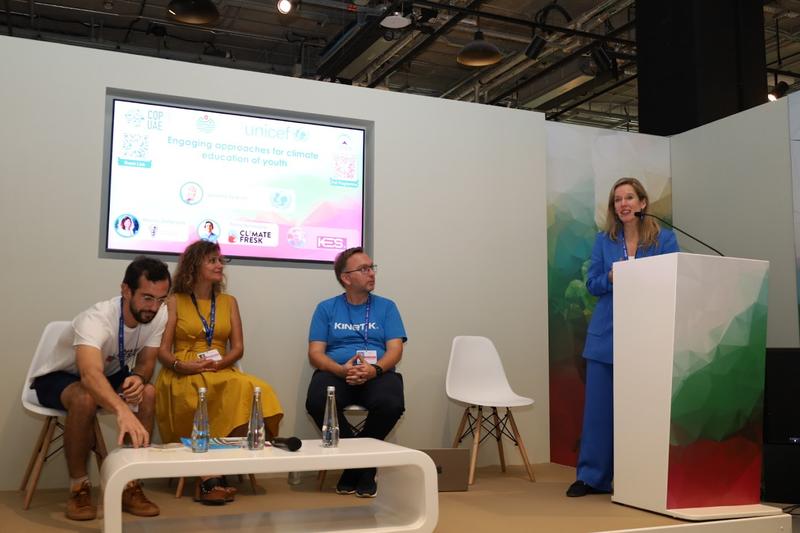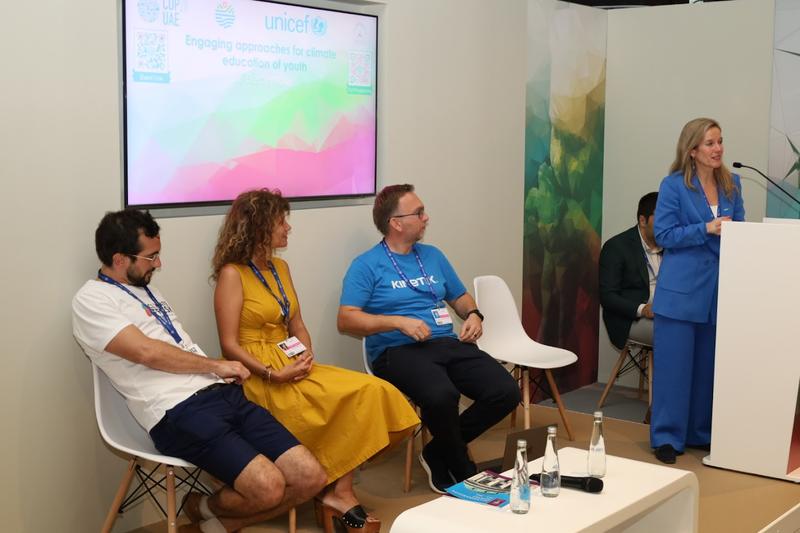Unconventional educational approaches in the field of climate were presented at the Bulgarian pavillion at COP28
On the day dedicated to children and young people at the COP28 climate conference in Dubai, the Bulgarian pavilion, hosted by the Ministry of Environment and Water, presented fun and engaging ways to learn about climate policy and climate change.
The panel "Approaches that attract young people to climate learning" demonstrated educational programmes, science activities, storytelling, and games that bring climate change closer to people, provoke their imagination and spark their engagement.
Assoc. Prof. Dr. Marina Stefanova - Deputy Dean of the Faculty of Economics and Management at Sofia University "St. Kliment Ohridski", presented a video on climate change and the fight against it, developed together with 60 students and experts from MP Studio. It is expected to be presented in a 3D version in Sofia in January, then it is to be shown in more than 10 other cities of the country and reach thousands of people. "This is a way to connect the scientific data presented in academic training with its practical application and to make a statement," said Stefanova.
"The Climate Fresk board game is another way to engage young people with climate issues, the link between causes and effects, which will help them develop new knowledge and skills by working in teams," said Pierre Benreguig, coordinator of the Climate Fresk group. The game has a children's version, but can also be played by adults, including climate policy makers. It is now present in more than 150 countries and has thousands of professional players, the so-called "freeskiers".
The Bulgarian "Kinetic Automotive" presented its development of professional electric go-kart cars, which are tens of times quieter and with lower emissions than petrol ones. "This way we can show that speed and power can coexist with sustainability," said company founder and managing director Teodosii Teodosiev. "Young people's interest in technology is encouraged by the company's programme that gives them the opportunity to assemble an electric go-kart themselves, thus learning a lot about both science and sustainability and becoming ambassadors of responsible behaviour towards the environment," he added.
"Three messages emerged from the discussion - summarized the moderator of the event Christina De Bruyn, UNICEF representative in Bulgaria. - The first is that lifelong learning is of great importance when it comes to climate change education. The second is about a cross-cutting approach in everything undertaken - in efforts across all sectors, and the third is to think about developing skills through design and the importance of the narrative that is used," she concluded.


